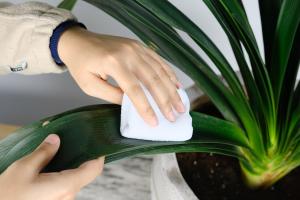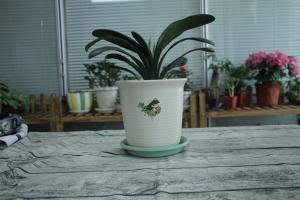Introduction
When it comes to planting trees, there are many factors to consider in order to ensure the tree's growth and survival. One commonly debated topic is whether or not to break up the roots of the tree before planting it. In this article, we will explore the reasons for and against breaking up roots when planting trees.
What is root-bound
Before discussing whether or not to break up roots when planting trees, it's important to understand what root-bound means. A root-bound plant has outgrown its container, causing its roots to become tangled and coiled. This can lead to poor water and nutrient absorption, which can stunt the plant's growth and cause it to eventually die. When purchasing a tree from a nursery, it's important to check for signs of root-boundness.
Reasons to break up roots
One reason people believe in breaking up roots when planting trees is to promote healthy root growth. When roots become root-bound, their growth becomes limited and stunted. Breaking up the roots can encourage new root growth and prevent the tree from becoming root-bound again in the future. Additionally, breaking up the roots can help the tree establish itself in its new environment by spreading out and absorbing nutrients and water more efficiently.
Reasons to not break up roots
On the other hand, some people argue that breaking up the roots can cause more harm than good. The process of breaking up roots can be damaging to delicate root systems, which can make it harder for the tree to establish itself and grow properly. Furthermore, when roots are broken up, it can make it easier for pathogens and pests to enter the tree and cause damage. Finally, many trees have evolved to grow in specific soil conditions, and breaking up the roots can disrupt the natural balance of the soil.
Alternatives to breaking up roots
For those who are unsure whether or not to break up a tree's roots, there are alternatives to consider. One option is to create a planting hole that is larger than the root ball but not necessarily deeper. This allows the roots to spread out naturally without being disturbed. Another option is to plant the tree in its container and gradually remove it over time as the roots establish themselves in the surrounding soil.
Conclusion
In conclusion, there is no one-size-fits-all answer when it comes to breaking up roots when planting trees. It ultimately depends on the specific tree, soil conditions, and planting location. However, it's important to carefully consider the potential benefits and drawbacks before making a decision. Consulting a professional arborist or nursery can also provide valuable insight and guidance. Ultimately, the goal is to promote healthy root growth and ensure the tree's long-term survival.

 how many times do yo...
how many times do yo... how many planted tre...
how many planted tre... how many pine trees ...
how many pine trees ... how many pecan trees...
how many pecan trees... how many plants comp...
how many plants comp... how many plants can ...
how many plants can ... how many plants and ...
how many plants and ... how many pepper plan...
how many pepper plan...































